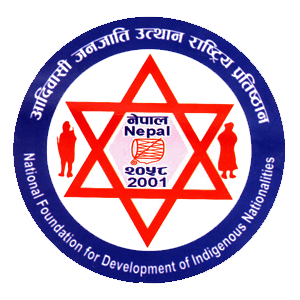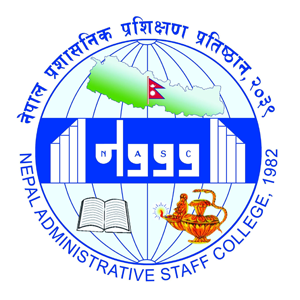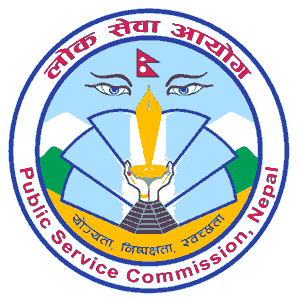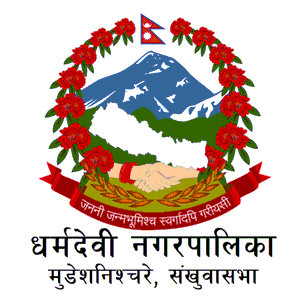Overview
The Nepal Bar Council (नेपाल कानून व्यवसायी परिषद्) stands as a pivotal institution in the legal landscape of Nepal. Established under the Nepal Bar Council Act, 2050 BS, it serves as a self-governing body dedicated to supporting and overseeing legal professionals in the country. Its creation marked a significant step in the evolution of Nepal's legal framework, ensuring that the rights and interests of legal practitioners are safeguarded while enhancing their contribution to society.
Key Functions and Responsibilities
- Certification and Registration: Initially, the Supreme Court handled the issuance of legal practitioner certificates and maintained registration records. With the Council's inception, these responsibilities transitioned to it, ensuring a more specialized and focused approach.
- Professional Code of Conduct: The Council plays a critical role in defining and enforcing a professional code of conduct for legal practitioners. This includes monitoring compliance and addressing any breaches in professional conduct.
- Training and Education: Emphasizing the importance of continual learning, the Council organizes necessary training and educational programs to uphold the dignity of the legal profession.
- Advocacy and Support: Protecting the rights, reputation, and interests of legal practitioners, the Council facilitates studies, discussions, and seminars to promote the welfare of its members.
Senior Advocate Designation
- Criteria for Selection: The Supreme Court has the authority to confer the title of Senior Advocate to those who have demonstrated exceptional dedication and integrity in their legal practice for at least 15 years.
- Oversight and Regulation: The Council is responsible for the registration, record-keeping, and disciplinary proceedings of senior advocates, ensuring adherence to established standards.
Regulatory Framework and Governance
- The Nepal Bar Council has implemented various regulations and guidelines under the Nepal Bar Council Act, 2050 BS, to streamline its operations. These include internal procedures, curriculum guidelines, examination conduct, financial administration, and disciplinary committee operations.
Council Composition and Structure
- Council Members: The Council comprises 13 councilors, including key figures like the Attorney General and the President of the Nepal Bar Association, along with elected and nominated senior advocates and advocates.
- Administrative Leadership: The Council is led by a secretary, who is pivotal in managing its administrative functions.
Impact on Legal Education and Standards
- By recommending and enforcing educational standards for legal professionals, the Council significantly contributes to the advancement of legal education in Nepal.
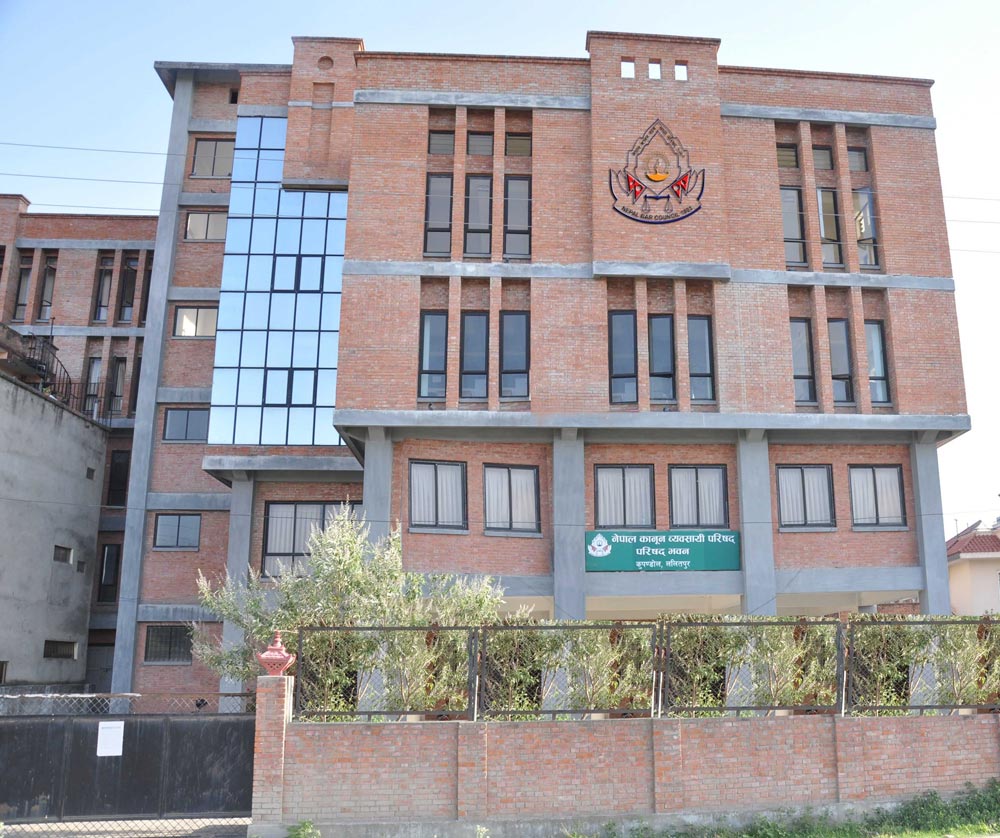
Scope of Work of the Nepal Bar Council
The Nepal Bar Council plays a critical role in shaping the legal landscape of Nepal. Its responsibilities, aimed at enhancing the quality of legal services and safeguarding the rights of legal practitioners, encompass a wide range of activities. Let's delve into these key areas of operation:
(a) Examination of Entrants to the Legal Profession
- The Council conducts rigorous examinations for those aspiring to enter the legal profession. This ensures that only qualified individuals are admitted, maintaining high standards in legal practice.
(b) Registration and Record Keeping of Legal Practitioners
- A core function involves registering legal practitioners and maintaining up-to-date records. This process helps in tracking the active legal professionals and ensures their compliance with regulatory standards.
(c) Prescribing a Code of Professional Conduct
- The Council sets forth a comprehensive code of conduct for legal practitioners. This code serves as a guideline for ethical and professional behavior within the legal community.
(d) Monitoring Adherence to the Professional Code of Conduct
- Beyond establishing the code, the Council actively monitors compliance among legal professionals. This oversight is crucial in maintaining the integrity and professionalism of the legal practice.
(e) Handling Complaints and Disciplinary Actions
- The Council receives complaints against legal practitioners who violate professional conduct. It is responsible for investigating these complaints and imposing appropriate disciplinary actions and penalties.
(f) Protecting Legal Practitioners’ Rights and Offering Training
- A significant aspect of the Council's work is to protect the rights, reputation, and security of legal professionals. It also provides essential training and education to enhance the dignity and competence of the profession.
(g) Recommending Educational Standards for Legal Education
- The Council plays a pivotal role in elevating legal education by recommending appropriate educational standards. This ensures that legal education in Nepal remains relevant, comprehensive, and of high quality.
(h) Conducting Annual Surveys and Publishing Information
- The Council conducts annual surveys of Nepalese laws, maintaining updated records of law practitioners. Additionally, it ensures public awareness of its activities through necessary publications, fostering transparency and accountability.
Committees of the Nepal Bar Council
The Nepal Bar Council, as a central body overseeing legal practice in Nepal, has established various committees, each focusing on specific aspects of legal profession management and development. These committees play a crucial role in ensuring the effective functioning of the Council and the legal profession at large. Let's explore the objectives and roles of each committee:
Performance Committee
- Focuses on evaluating and improving the overall performance of legal practitioners. This committee may assess factors like efficiency, adherence to ethical standards, and the quality of legal services provided.
Disciplinary Committee
- Central to maintaining professional integrity, this committee handles cases of misconduct among legal practitioners. It investigates complaints, conducts hearings, and recommends disciplinary actions when necessary.
Examination Committee
- Responsible for organizing and overseeing the examinations for aspiring legal practitioners. This committee ensures that the exams are fair, and comprehensive, and effectively assesses the candidates' capabilities.
Lawyers Academy Management Committee
- Manages the operations and programs of the Lawyers Academy, which might include training sessions, workshops, and continuous legal education for practicing lawyers.
Awards Committee
- This committee identifies and honors outstanding contributions in the legal field. It may be involved in selecting candidates for awards and recognitions that highlight excellence in legal practice or contributions to the legal community.
Law Education Committee
- Dedicated to enhancing the quality of legal education. It may work on developing curriculum standards, coordinating with educational institutions, and recommending improvements in legal education.
Publication Committee
- Handles the publication of materials relevant to the legal profession. This could include legal journals, newsletters, reports on legal developments, and educational resources.
Committee on International Relations
- Focuses on fostering relationships with legal bodies and organizations outside Nepal. This committee might engage in exchange programs, collaborative projects, and international legal forums.
Legal Practitioners Welfare Fund Management Committee
- Manages a welfare fund dedicated to supporting legal practitioners, especially in times of need. This committee might oversee fund allocation, manage contributions, and ensure the fund is used effectively to support its members.



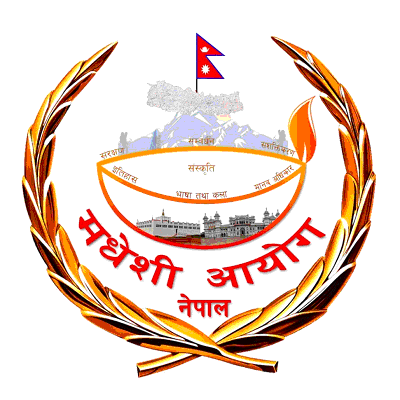
-Logo.png)
-Logo.png)
.png)
